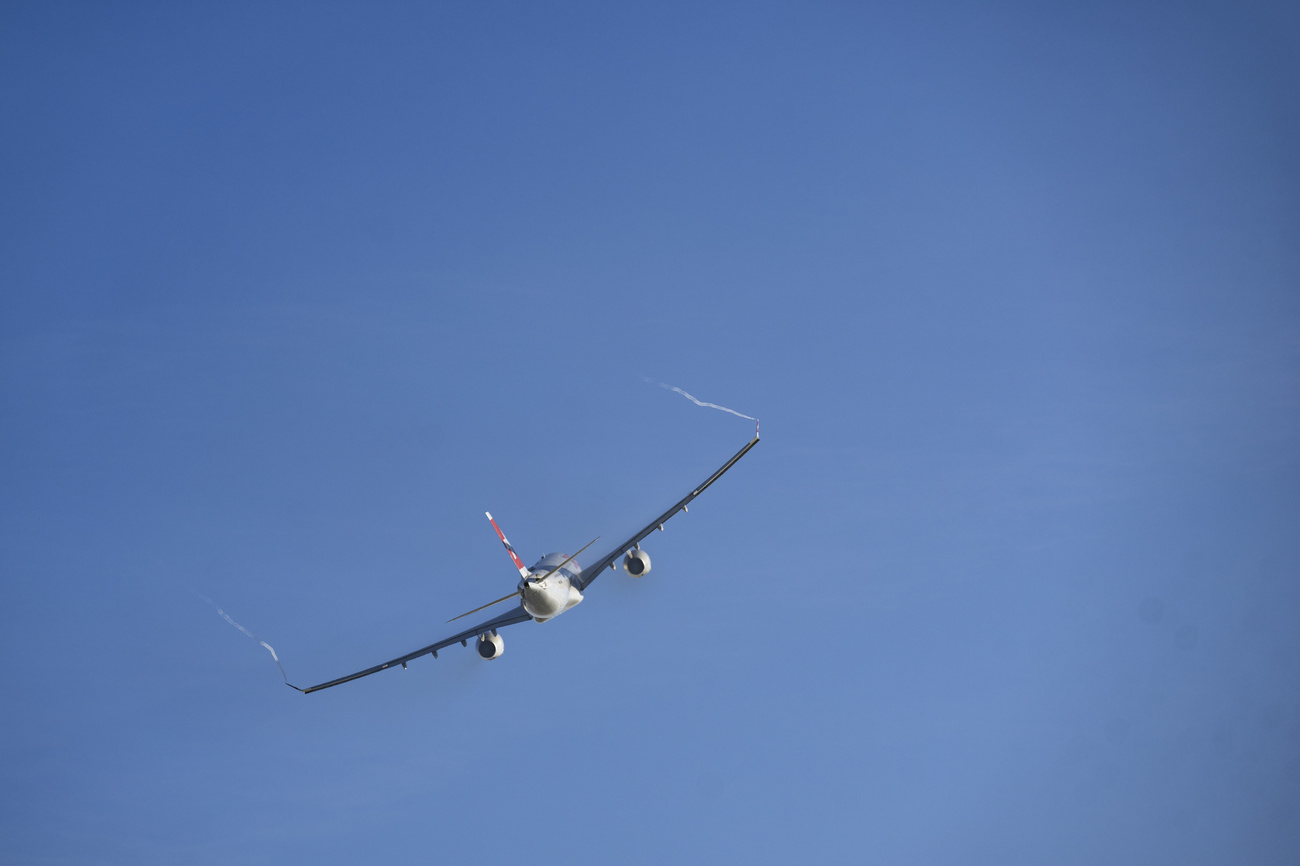Hello beach holidays, goodbye flight shaming. What happened?

Swiss International Air Lines (SWISS) is making a record profit and passenger numbers are rising again. Are the days of ecological awareness and flight shaming over?
SWISS posted a record result for 2023: the company generated a turnover of CHF5.3 billion ($5.7 billion). The pandemic seems to have been forgotten, as has the shame of flying. Although passenger numbers have not yet reached pre-pandemic level, they are approaching the 2019 figures.
Neither Cyrill Hermann, a climate striker, nor behavioural researcher Christian Fichter is surprised by this development. “If the figures had remained low, I would have been surprised,” Fichter says. “People can change, but only within certain limits. Sustainable change is difficult to implement.”
The climate movement and, as a result, flight shaming did have an effect on flying. “But it wasn’t as big as people thought,” Fichter says. It’s true, he says, that many people around the world were concerned about flying – “as a society, we want to do something about climate change” – but he points out that “this is the central purpose of life only for a small proportion of people and, accordingly, only a small proportion are willing to restrict their consumer behaviour to such an extent”.

More
Flight shaming
Responsibility lies with companies and governments
Cyrill Hermann struggles with the concept of flight shaming. “We take a critical view of flight shaming. The responsibility for CO₂ emissions does not lie with the individual, but with airlines and the Swiss government,” he says, explaining that they are responsible for reducing short-haul flights by 2030, for example.
So everything is fine if we jet off on holiday once, twice or three times a year? No, Hermann says. “I personally wouldn’t do it, but I’m not angry with the people who do.”
The shock of 2019, when the climate movement was at its peak, is probably gone and with it the sense of shame. Hermann understands this. “I don’t see the point of reducing my emissions either, as long as 100 companies alone are responsible for more than 70% of emissions. Many people no longer see the responsibility as lying solely with themselves.”
The traveller’s dilemma
Behavioural researcher Christian Fichter echoes a similar sentiment. Travellers see themselves in a dilemma. On the one hand, they are motivated to protect the environment, but on the other, they also want to have a good time. “In the end, it’s all about comfort and your wallet.” Although ticket prices have risen in recent years, the pain threshold has still not been reached for many travellers, he says.
Generally speaking, there are four levers for sustainably consolidating change, Fichter says. In addition to comfort and money, for example, there is social ostracism, as was the case with flight shaming. “What’s much better and more effective, however, is conviction. You should inform and empower people so that they can think about a situation and then adapt their behaviour,” he says.
Translated from German by DeepL/ts
It’s not just air travel that has increased again since coronavirus. When asked, the Swiss Federal Railways reports that demand for international train journeys has risen significantly in recent years.
Milan, Paris and Munich are particularly popular. Destinations with slightly longer journey times, such as Amsterdam, Berlin, Vienna and Rome, are also becoming more popular. In summer, people are drawn to the seaside, for example to the south of France or the Italian Mediterranean coast, the Adriatic or the North Sea.
With journey times of four to six hours, the train is competitive with the aeroplane, according to the Federal Railways. However, more and more passengers are also taking the train for longer journeys.

In compliance with the JTI standards
More: SWI swissinfo.ch certified by the Journalism Trust Initiative
You can find an overview of ongoing debates with our journalists here. Please join us!
If you want to start a conversation about a topic raised in this article or want to report factual errors, email us at english@swissinfo.ch.